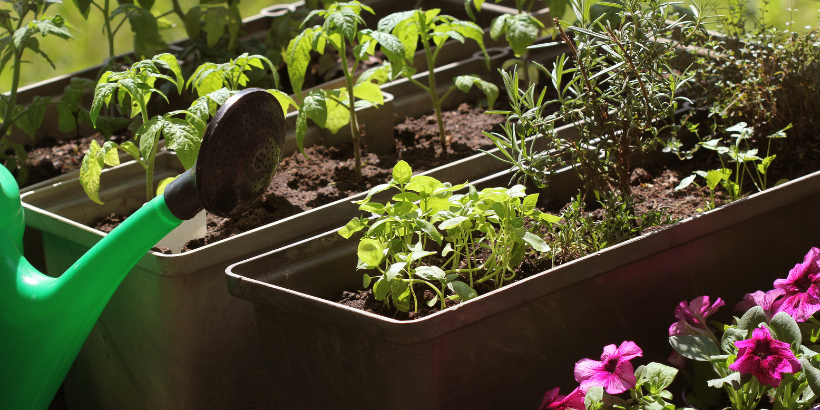The Best Gardening Plants for Low-Maintenance and High Compensate
The Best Gardening Plants for Low-Maintenance and High Compensate
Blog Article
Opening the Benefits of Horticulture: A Comprehensive Appearance at the Various Types and Their Influence On Well-Being
Checking out the complex advantages of horticulture discloses a range of practices that dramatically boost private well-being. As we analyze these diverse horticulture strategies, it ends up being evident that their impact can resonate on personal, social, and ecological degrees, prompting a better look at exactly how these connections create a natural story of alternative wellness.
Sorts Of Horticulture

Flower horticulture, one more popular group, stresses the visual charm of cultivated flowers. This type can boost landscapes and advertise biodiversity by bring in valuable pollinators. Herb gardening involves expanding aromatic and cooking plants, adding both to food preparation and natural remedies.
Container gardening offers convenience, making it possible for individuals with restricted room to engage in gardening by utilizing pots and planters. This method is specifically preferred in metropolitan setups. Elevated bed gardening, on the other hand, involves producing elevated stories that enhance soil drainage and access, making it much easier for gardeners to manage their plants.
Last but not least, community horticulture promotes cooperation among individuals in common rooms, advertising social communication and cumulative responsibility. Each kind of gardening offers unique functions and deals with different choices, making horticulture a versatile activity that can be customized to private requirements and atmospheres.
Mental Health Advantages
Involving in numerous kinds of gardening not only yields tangible benefits such as fresh fruit and vegetables and stunning flowers however also provides significant mental health and wellness benefits. Research study indicates that gardening can be a powerful device for minimizing anxiety, stress and anxiety, and clinical depression. The act of tending to plants and growing a yard fosters a feeling of function and achievement, which can improve general psychological wellness.
In addition, horticulture urges mindfulness, as it calls for people to concentrate on the existing minute, whether it be growing seeds or supporting development. This mindfulness method can cause minimized rumination and boosted state of mind security. The exposure to native environments during horticulture has also been connected to boosted cognitive operating and reduced feelings of tiredness.
Social interaction plays a critical duty in psychological health and wellness, and community gardening campaigns give possibilities for people to link with others, fostering a sense of belonging. The common experience of horticulture can cultivate friendships and assistance networks, additionally boosting emotional resilience.
Physical Wellness Benefits
Lots of individuals may not understand that gardening additionally provides considerable physical health and wellness benefits. Participating in gardening tasks requires a series of physical movements, consisting of flexing, training, excavating, this website and growing, which collectively add to better toughness, adaptability, and endurance. These actions can enhance cardio health and wellness by advertising a raised heart price, thus minimizing the threat of cardiovascular disease.
Additionally, horticulture can act as a moderate-intensity exercise, assisting people attain advised physical activity levels. Research studies suggest that routine engagement in horticulture can melt significant calories-- roughly 200-400 calories per hour, depending upon the strength of the jobs done. Such calorie expense is advantageous for weight administration and general metabolic health and wellness.
Furthermore, direct exposure to sunshine during gardening can assist in the synthesis of vitamin D, which plays a crucial duty in keeping bone wellness and sustaining immune feature. The act of horticulture commonly includes working with soil, which has been connected to possible psychological and physical health and wellness benefits due to the presence of advantageous microorganisms.
Social Links Via Horticulture
The common elements of gardening foster meaningful social connections amongst people. Area gardens, in particular, function as vivid centers where people from varied histories collaborated, growing not just plants however also partnerships. These shared spaces urge partnership, allowing people to exchange expertise, skills, and resources, consequently enhancing their horticulture experience and promoting a sense of belonging.
Interaction in gardening tasks typically results in the development of friendships and assistance networks. Participants frequently join for typical goals, such as planting seasons, harvest parties, or educational workshops, which reinforce interpersonal connections and create a feeling of community. Such communications can ease feelings of seclusion and enhance psychological wellness, as people find friendship and sociability in shared undertakings.

Ecological Impact of Gardening
Horticulture substantially contributes to ecological sustainability in several ways. Among the most notable advantages is the enhancement of biodiversity. Home yards give important habitats for numerous types, including pollinators such as bees and butterflies, which are essential for environment health and wellness. By cultivating varied plant species, garden enthusiasts can create a well balanced environment that sustains both flora and animals.

Furthermore, gardens play an important duty in water conservation. Tactical landscapes, including indigenous plants and xeriscaping, decrease water use and stop overflow, thereby securing regional waterways from air pollution.
Final Thought

The diverse types of gardening-- including veggie, flower, herb, container, and increased bed-- add to mental and physical health and wellness, foster social links, and advertise ecological sustainability. By helpful resources engaging in gardening practices, individuals can experience enhanced high quality of life while additionally sustaining area bonds and ecological health.
Report this page